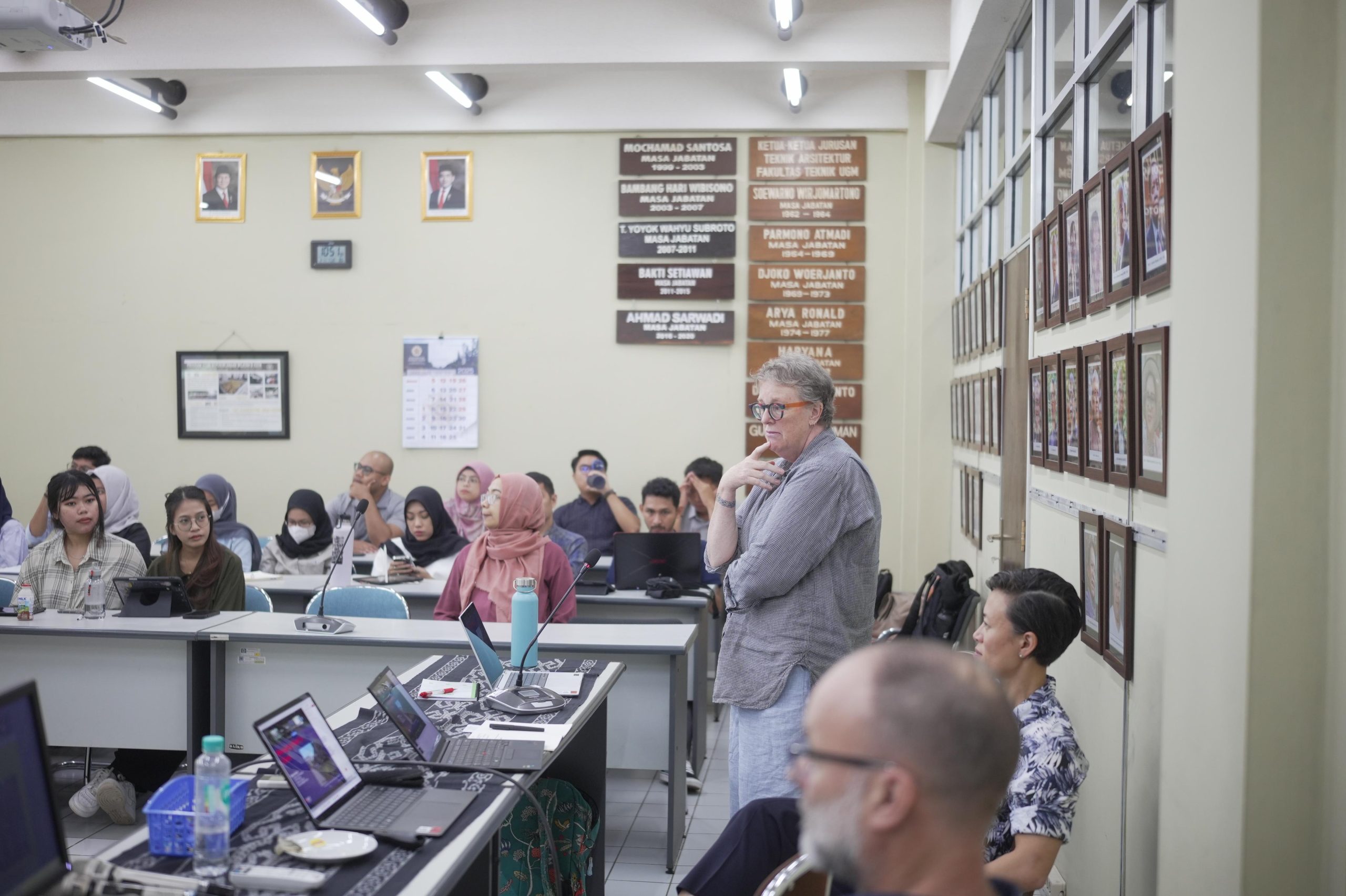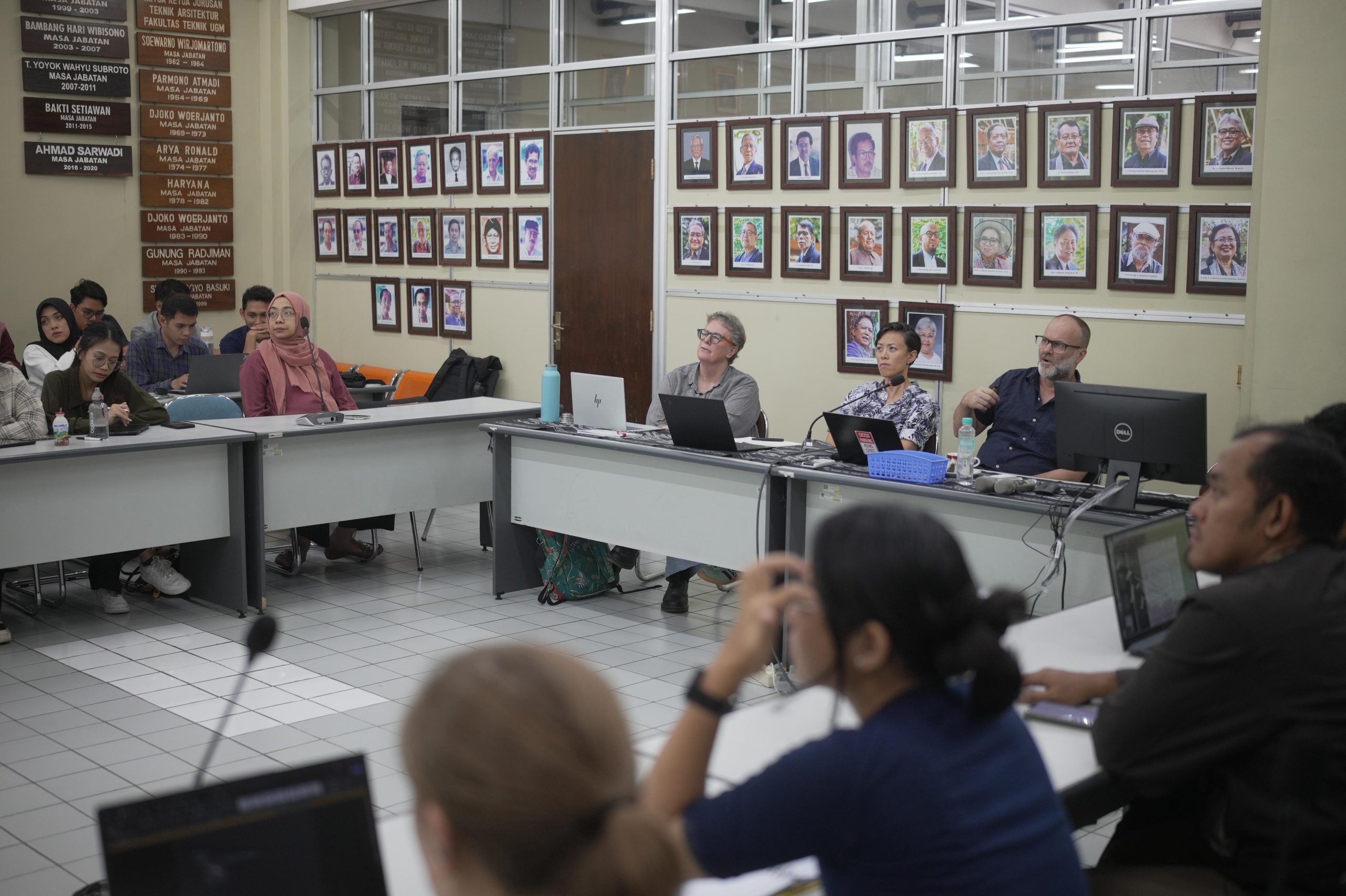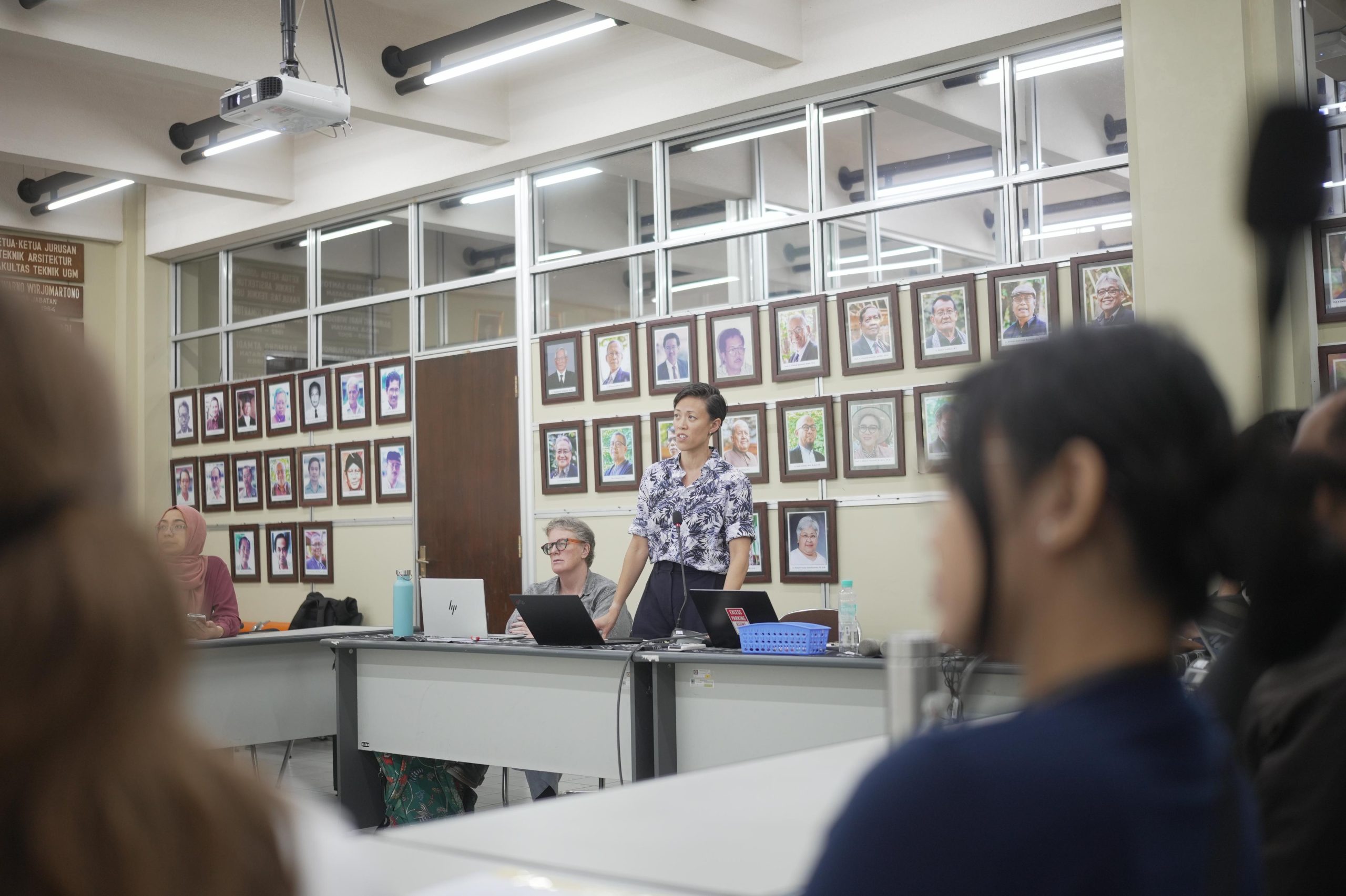Yogyakarta, 11 February 2024 – Master program for Urban Regional Planning conducted a guest lecture was held in the Development Management course, featuring three remarkable speakers: Prof. Andrew Butt, Dr. Melissa Neave, and Dr. Serene Ho. Prof. Andrew Butt is from RMIT University, he is an expert in rural and regional planning, blending technology with urban planning to create smarter and more sustainable cities. Dr. Melissa Neave is from RMIT University, she is an environmental geographer, focuses on managing natural resources and understanding the environmental impacts of urbanization. Dr. Serene Ho, from The University of Melbourne, known for her work on land tenure governance, shed light on the challenges of managing land data.
Prof. Andrew kicked off the discussion by emphasizing the importance of data in the development of smart cities. He pointed out that the vast amount of spatial data available today requires critical thinking to identify what is truly useful. He showcased the application of livability indicators in Australian cities as a prime example of how data can be used effectively. Prof. Andrew’s insights illustrated the potential of data to improve urban planning and the quality of life for residents by making cities more sustainable.
Dr. Melissa followed with a talk on the urban heat island effect, its causes, and the health impacts of rising temperatures. She underscored the role of vegetation in cooling urban areas and proposed green infrastructure as a vital solution. Dr. Neave explained how pollution, city shape, and surface materials contribute to urban heat islands and highlighted the significant health risks, such as increased hospital visits during heatwaves. She advocated for the incorporation of green infrastructure, like parks and urban vegetation, to mitigate these effects and create healthier urban environments.
Dr. Serene Ho discussed the complexities of managing land data, especially in informal settlements. She highlighted the governance and climate action implications and stressed the ethical considerations involved in data collection and use. Dr. Ho emphasized the need for accurate land data to support effective urban planning and governance. She pointed out the challenges in informal settlements, where traditional land tenure systems may not exist. Dr. Ho also linked land data management to climate action, showing how proper governance can support sustainable development and resilience to climate change.
The session wrapped up with actionable recommendations for various stakeholders in the urban planning ecosystem. Students were advised to hone their critical thinking skills and consider the ethical aspects of data collection in their projects. Urban planners were encouraged to prioritize green infrastructure to combat urban heat. Researchers were called to study the impact of climate change on urban heat islands further, and policymakers were reminded to balance housing needs with environmental concerns. These recommendations provided a clear path for attendees to apply the insights gained and work towards more sustainable urban development.



